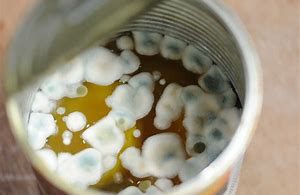NEWTON, Mass. In this high-achieving suburb of Boston, a failure to turn in a school assignment on time can result in a deduction of a full letter grade, leading to a dramatic reduction in a student’s academic average and dealing a fatal blow to a student’s chances of being accepted by a top college. “I know to people outside of the northeast the difference between a Clark and a Tufts and a Middlebury is trivial,” says guidance counselor Phil Matson of Newton West High School, “but that just shows how ignorant they are.”

“What flavor yogurt is that–molds and spores?”
So when Monday looms on the horizon following a busy weekend when over-scheduled kids have had soccer, field hockey, full-immersion Mandarin Chinese, flag football and intensive French mime classes crammed into them for 48 consecutive hours of cultural enrichment, parents often find themselves confronting unforeseen academic obligations that have somehow slipped through the cracks. “It’s something I’ve learned to deal with,” says Marcy Everberg, mother of three. “You do the best you can with what you’ve got.”

So when Benjamin, her 13-year-old son, belatedly announces at Sunday night dinner that he has a science project due the following morning, Everberg springs into action. “Don’t take that out yet,” she calls to her husband Dan as he starts to dump a plastic trash bag into a garbage can for Monday morning collection. “We need it for seventh-grade science.”

Nobel Prize-winning tomato.
She fishes in the bag and plucks out a lemon that has turned dark green and white in addition to its customary yellow, and a tomato that has erupted with greyish spores. “Get me Caitlin’s poster board from last year,” she calls out, referring to her middle daughter, now a high school freshman. “And a glue stick–STAT!”
The use of spoiled fruits and vegetables in last-minute science projects has become so widespread that the National Science Foundation has issued guidelines for educators to distinguish between uses that further the advance of knowledge in chemistry, physics and biology, and those that merely represent regular, if overdue, refrigerator maintenance. “I don’t think anybody is going to miss out on the Nobel Prize if we crack down on the more ‘creative’ attempts to re-purpose moldy alfala sprouts,” said Dr. Armand Ciersdorf, a three-time runner-up for an NSF “Wild Card” slot in physics. “If these kids would turn off their damn phones and video games for half an hour they might actually earn their inflated 4.33 grade point averages.”

The blue part’s the best!
The salvage operation is successful, and as Benjamin Everberg puts the finishing touches on a poster board that explains “How Mold is Formed,” he breathes a sigh of relief that is echoed by his parents, who have high hopes that his grades and test scores will be good enough for him to get into medical school. “Yes it was an inadequate last minute rush job,” Marcy says as she slouches back into a chair to watch television. “But isn’t that what healthcare is all about these days?”

